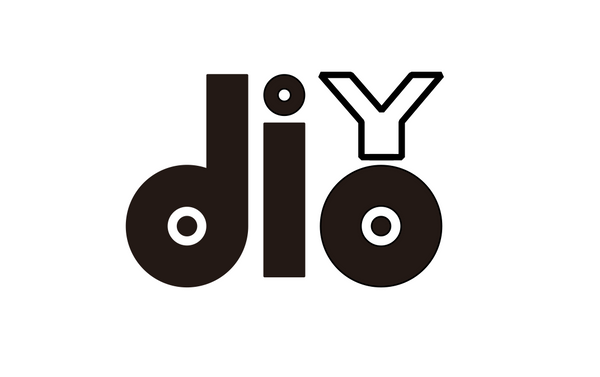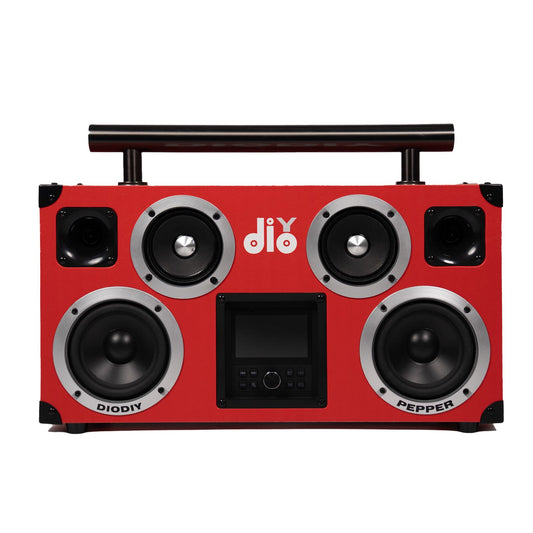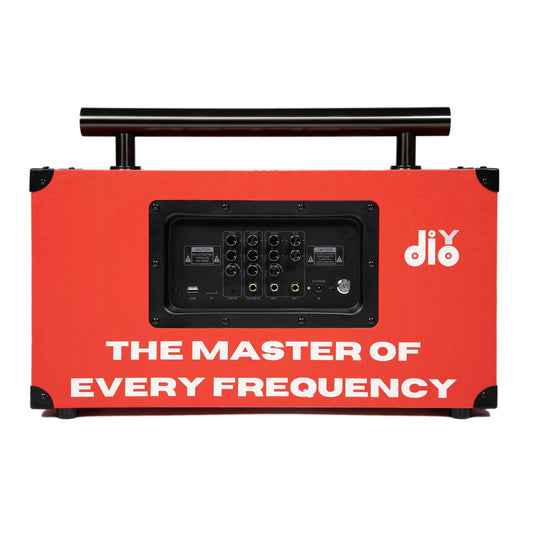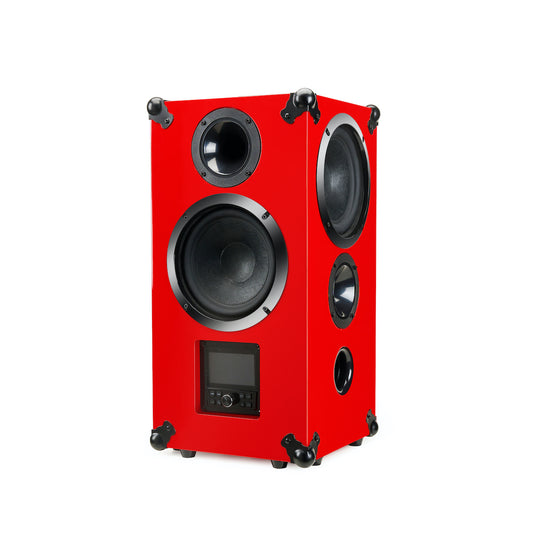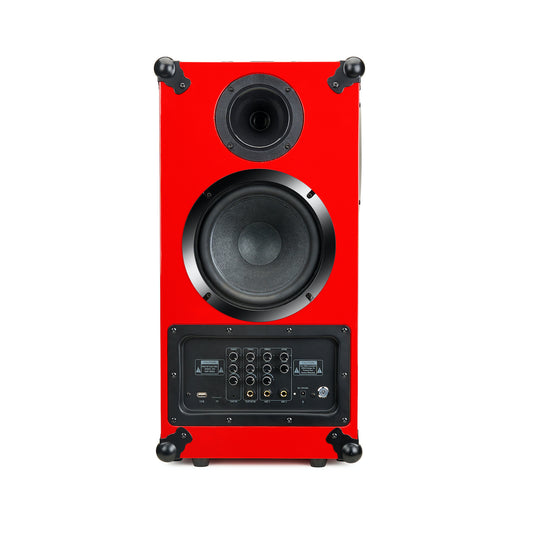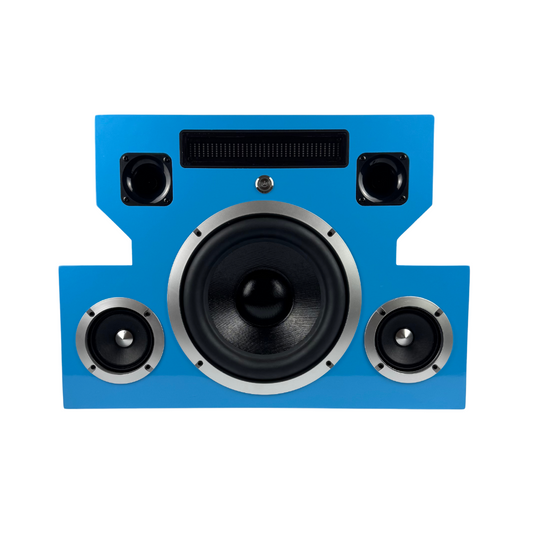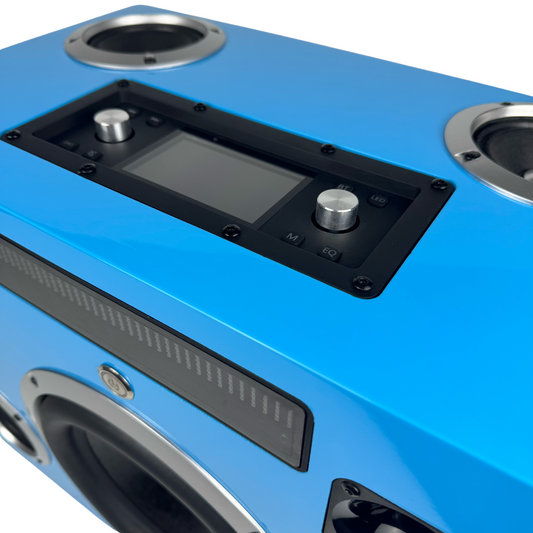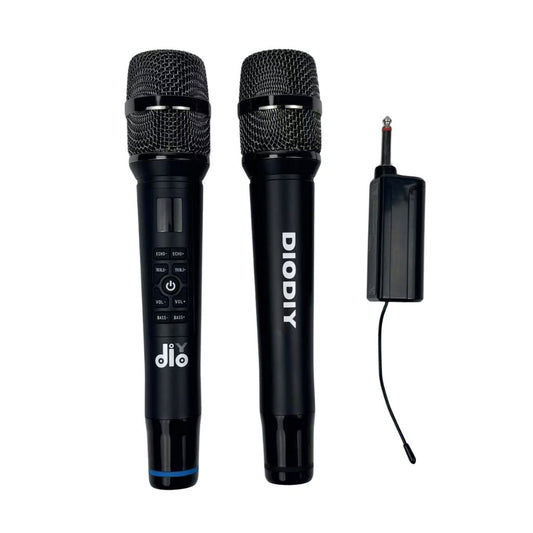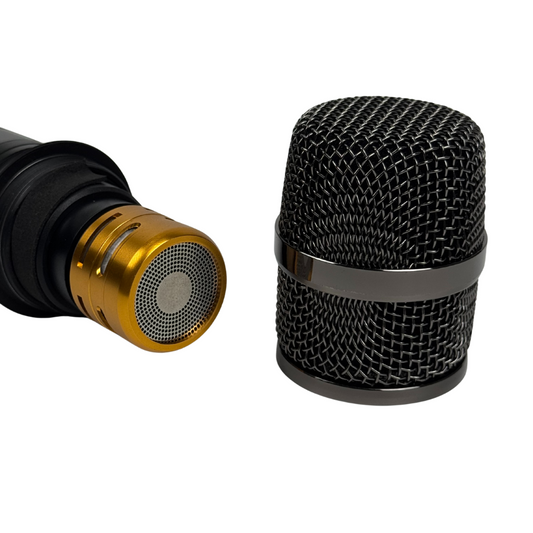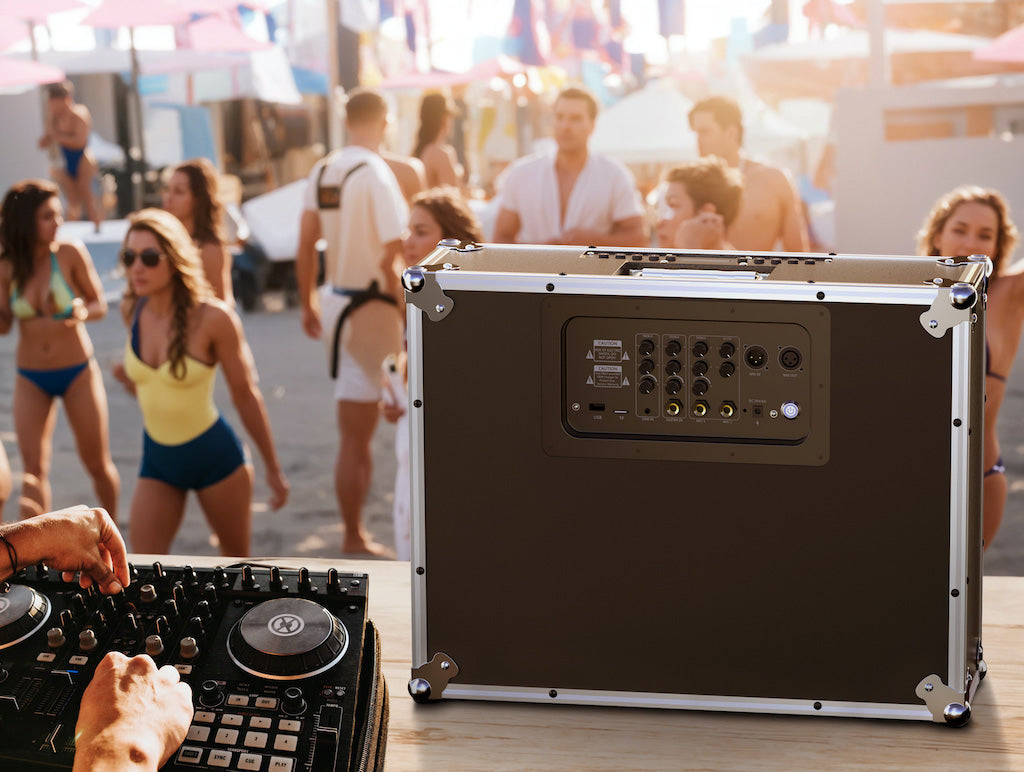
What Is a DJ Box, and How Does It Compare to Other DJ Equipment?
Share
The term "DJ box" is often used interchangeably with other related gear, but it represents a specific type of equipment vital to a DJ's setup. This blog will delve into what a DJ box is, how it differs from other common DJ terms like DJ mixer and DJ table, and why DJ equipment is generally expensive. We'll also introduce DioDIY's DJ BOX, a high-quality, professional product designed for both beginners and seasoned DJs.
What is a DJ Box?
A DJ box is a piece of equipment that typically combines various functionalities for a DJ to mix music, manage inputs, and control output levels. In many cases, a DJ box includes built-in loudspeakers, a mixer, and audio input options, making it an all-in-one solution for DJs who need portability and convenience. Unlike a standalone DJ mixer or controller, a DJ box tends to be a self-contained system.
DJs use the DJ box to create live music mixes, add effects, and transition seamlessly between tracks. It's often compact, so it can be easily transported and set up at venues, allowing DJs to perform anywhere without relying on external speakers or amplifiers.
Common DJ Terms: DJ Box, DJ Mixer, and DJ Table
While these terms might sound similar, they refer to different pieces of equipment, each serving a unique purpose in a DJ’s setup.
DJ Box

A DJ box, as explained earlier, is an all-in-one system. It usually includes everything a DJ needs to play and control music, including speakers, inputs, and connectivity options. The key advantage of a DJ box is its portability and convenience.
DJ Mixer
A DJ mixer is a specialized piece of hardware that allows DJs to combine multiple audio signals into one cohesive output. It enables them to transition between songs, add effects, and adjust the volume of various tracks. However, a DJ mixer does not have built-in speakers or playback capabilities on its own—it requires external speakers, input devices (like turntables or CDJs), and possibly amplifiers. A mixer is more flexible for large-scale setups but less portable compared to a DJ box.
DJ Table
A DJ table is not an electronic device but rather the physical platform where a DJ places their equipment, including turntables, controllers, and mixers. It's essentially a workspace. Some DJ tables are equipped with cable management and slots designed to hold audio equipment, but they are simply furniture designed for convenience.
Are DJ Boxes, Mixers, and Tables the Same Thing?
Clearly, they are not the same, though all are vital in a DJ’s performance. A DJ box combines the essential elements (like speakers, mixer functions, and connectivity) into one system. In contrast, a DJ mixer focuses purely on combining audio signals, and a DJ table serves as the physical setup space.
What Equipment Does a DJ Need?
DJs need various pieces of equipment depending on the complexity of their performance and venue size. Here’s a breakdown of the essential gear:
- DJ Controller or Mixer: DJs use this to blend and transition between tracks, add effects, and control volume. Many modern DJs rely on controllers that integrate with DJ software, though standalone mixers are still widely used.
- Turntables or CDJs: For those who prefer vinyl or CDs, turntables and CDJs (Compact Disc Players for DJs) are still popular. These devices feed into the mixer to allow physical manipulation of music.
- Speakers: DJs need quality speakers to project their sound. While a DJ box often includes built-in speakers, other setups may require external loudspeakers and subwoofers.
- Headphones: DJs use headphones to preview and cue the next track without the audience hearing it. This allows them to synchronize beats and ensure smooth transitions.
- DJ Software: Most modern DJs rely on software to manage playlists, sync beats, and apply effects. Popular choices include Serato, Traktor, and Rekordbox.
- Cables and Connectors: XLR cables, RCA connectors, and other audio cables are essential to ensure smooth connections between various pieces of equipment.
- Laptop or Media Player: Depending on their setup, DJs often use a laptop loaded with DJ software to manage their sets or use standalone media players to play digital music files.
Why Is DJ Equipment Expensive?
There are several reasons why DJ equipment tends to be pricey:
- Durability: DJ gear, especially when used in clubs or outdoor events, needs to withstand frequent use, transportation, and potentially rough handling. Manufacturers use high-quality materials to ensure durability.
- Sound Quality: High-end DJ gear delivers superior audio quality, which is essential in a performance setting. Equipment needs to produce clear, powerful sound without distortion, even at high volumes.
- Technology Integration: Modern DJ controllers, mixers, and boxes often include cutting-edge technology like touch-sensitive controls, Bluetooth connectivity, and built-in effects processors, all of which contribute to a higher price.
- Customization and Flexibility: Many DJ systems are customizable, allowing DJs to create the setup that works best for their needs. This versatility comes at a cost.
Does a Higher Price Mean Better Quality for a DJ Box?

The short answer is—generally, yes, but it depends on the needs of the DJ. Higher-priced DJ boxes tend to offer:
- Better Build Quality: Materials are often more durable, making the equipment more resistant to wear and tear.
- Superior Audio Performance: The sound quality is typically more refined, with clearer highs and deeper lows.
- Advanced Features: Higher-end DJ boxes may include more inputs, greater connectivity options, and superior battery life.
However, a higher price doesn’t always mean better for every DJ. Beginners may not need all the advanced features of a high-end DJ box, and a more affordable model could serve their needs just as well. It's crucial to consider the venue, performance style, and budget before investing in DJ gear.
Introducing DioDIY’s DJ BOX
For DJs looking for an all-in-one, high-quality solution, DioDIY’s DJ BOX offers the perfect blend of performance and convenience. Designed for both amateurs and professionals, it is portable yet powerful enough to deliver professional-level sound quality.
Key Features of the DJ BOX:
- Watts: 200W, ensuring powerful sound that fills the room or outdoor space.
- Frequency Response: 20Hz to 20kHz, covering the entire spectrum of human hearing for balanced and dynamic audio.
- Loudspeakers: The DJ BOX includes one 10-inch woofer for deep bass and two 3-inch horn tweeters for crisp highs.
- Connectivity: Bluetooth V5.0 for seamless wireless connections, with a range of up to 33 feet.
- Audio Inputs: The DJ BOX supports AUX, GT (guitar input), USB, TF, XLR, and electric guitar connections, making it incredibly versatile for different types of performances.
- Power Supply: Powered by a reliable lithium iron phosphate battery, the DJ BOX charges in just six hours and offers up to 10 hours of use on a full charge.
These features make the DJ BOX a comprehensive solution for DJs who need professional-level sound without the hassle of setting up separate speakers, amplifiers, and input devices.
Why Choose DioDIY's DJ BOX?

- Portability and Convenience: With its compact design and powerful battery, DJs can easily transport the DJ BOX from venue to venue without worrying about setup time or available power outlets.
- High-Quality Sound: With a 200W output and a wide frequency range, the DJ BOX offers crystal-clear audio, whether you’re mixing at a club or hosting an outdoor party.
- Versatile Connectivity: The DJ BOX allows multiple input options, from Bluetooth to AUX, GT, and USB, ensuring that DJs can connect their preferred devices and instruments.
- Professional Design: The DJ BOX is designed for serious DJs who need equipment that looks as good as it sounds. With sleek black and silver accents, it has a professional aesthetic that will impress at any gig.
- Long Battery Life: A 10-hour battery life ensures that the DJ BOX can handle even the longest sets without needing a recharge.
Final Thoughts
In summary, the DJ box is an indispensable piece of equipment for many DJs, combining speakers, mixers, and inputs in a single, portable unit. While it's not the same as a DJ mixer or table, a DJ box offers unparalleled convenience and flexibility. Whether you're just starting as a DJ or you're a seasoned professional, understanding your equipment is key to delivering a top-tier performance.
When choosing DJ equipment, it’s important to balance price with your specific needs. Higher-priced equipment often means better sound quality, durability, and features, but it’s not always necessary for every DJ. That’s where products like DioDIY’s DJ BOX come in—offering high-quality sound and professional-grade features at an affordable price point.
So, if you're looking to elevate your DJ setup, look no further than the DioDIY DJ BOX—a versatile, powerful, and portable solution for all your performance needs.
